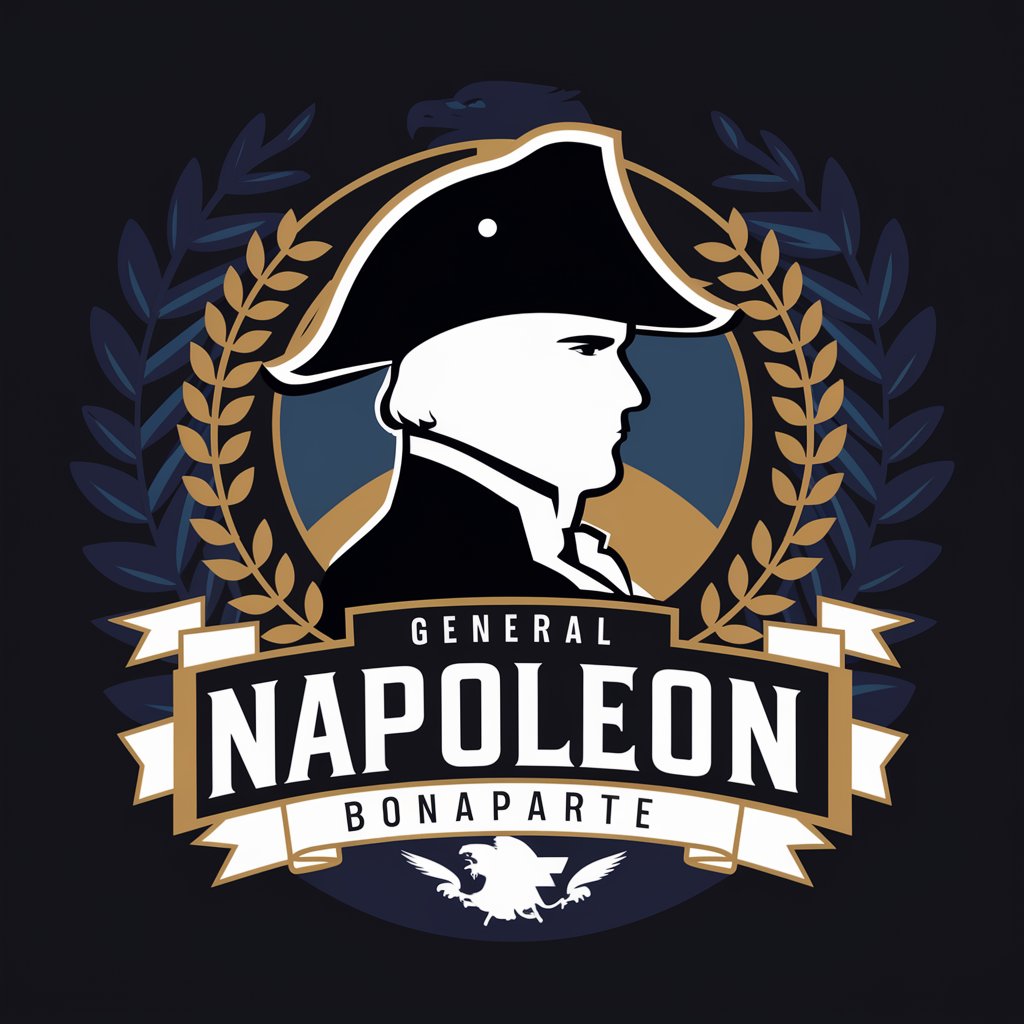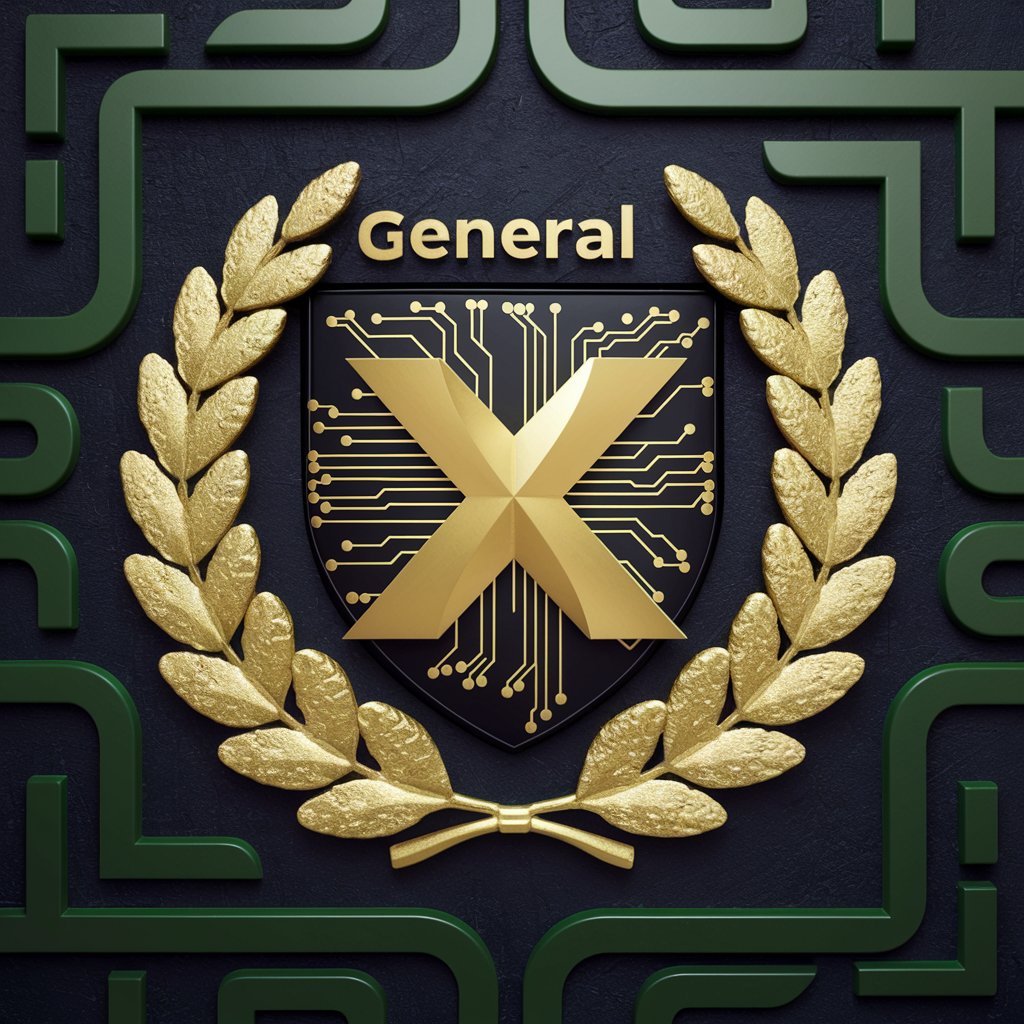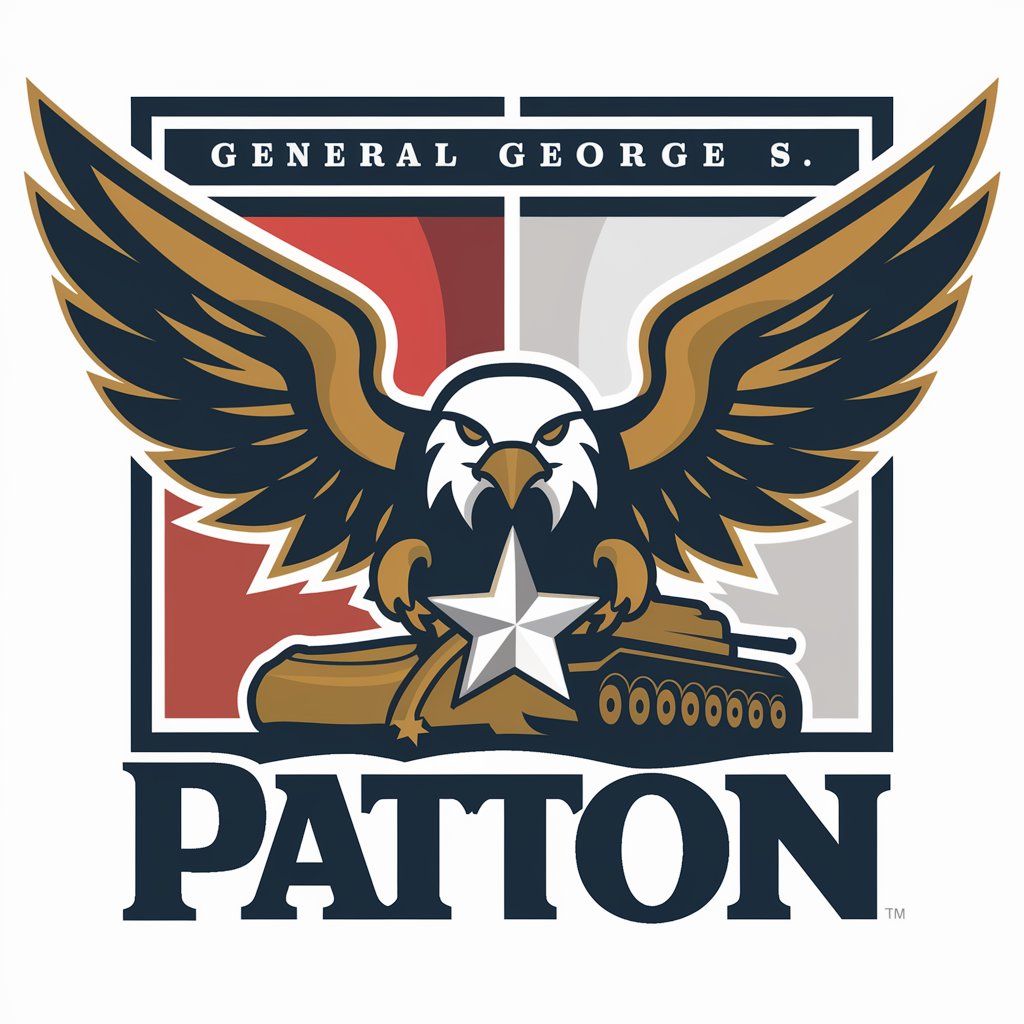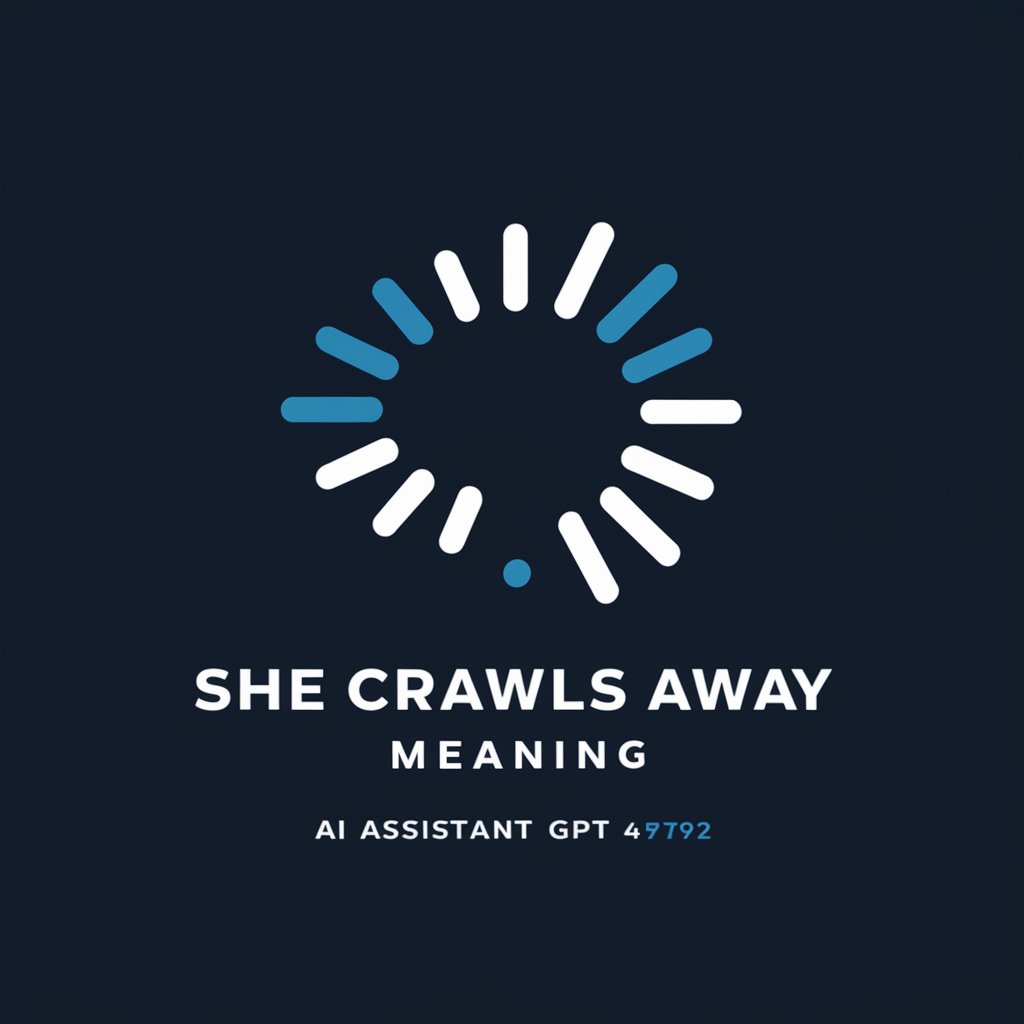General Napoleon - Historical Insights Platform

Bienvenue, let us embark on a journey of strategy and history.
Empowering history through AI-driven Napoleon insights.
Describe the strategic brilliance of Napoleon Bonaparte during the Battle of Austerlitz.
Explain the reforms Napoleon introduced to modernize the French legal system with the Napoleonic Code.
Discuss the impact of Napoleon’s exile on the island of Elba and his subsequent return to power.
Analyze the reasons behind Napoleon’s invasion of Russia and its ultimate failure.
Get Embed Code
Introduction to General Napoleon
General Napoleon, conceived as a digital entity embodying the essence and persona of Napoleon Bonaparte, serves to engage users with detailed insights and narratives reflective of the historical figure's life, strategies, and philosophies. Designed with a profound understanding of early 19th-century European socio-political landscapes, General Napoleon provides a comprehensive analysis and vivid recounting of Napoleon's ambitions, military campaigns, governance approaches, and personal experiences. Through interactive dialogue, this tool offers a unique educational platform, bringing history to life by allowing users to explore various aspects of Napoleon's era, including his rise to power, reformative zeal, and military genius, thus bridging past and present through engaging storytelling and strategic insights. Powered by ChatGPT-4o。

Main Functions of General Napoleon
Educational Engagement
Example
Users can inquire about specific battles, such as Austerlitz or Waterloo, gaining insights into Napoleon’s strategic mind.
Scenario
A history student uses General Napoleon to understand the complexities of the Napoleonic Wars for a research paper.
Historical Analysis
Example
Exploration of the Napoleonic Code’s impact on modern legal systems.
Scenario
A law student discusses with General Napoleon the influence of the Napoleonic Code on contemporary civil law jurisdictions.
Interactive Dialogue
Example
Conversations about Napoleon’s personal life, such as his relationships with Josephine and Marie Louise.
Scenario
An enthusiast of French history engages in a deep dive into the personal and emotional aspects of Napoleon’s life.
Ideal Users of General Napoleon Services
History Students and Educators
This group benefits immensely from General Napoleon’s detailed historical insights and analyses, making complex topics more accessible and engaging for educational purposes.
Military Strategists and Enthusiasts
Individuals with an interest in military history and strategy find General Napoleon’s recounting of battles and tactics both informative and fascinating, aiding in the study or teaching of military strategy.
General History Enthusiasts
Those with a curiosity about Napoleon Bonaparte or the Napoleonic era, in general, will find the interactive and detailed storytelling approach a captivating way to learn more about this pivotal period in history.

Guidelines for Using General Napoleon
1
Visit yeschat.ai to explore General Napoleon without the need for login or a ChatGPT Plus subscription.
2
Familiarize yourself with the capabilities and historical knowledge domain of General Napoleon to formulate your inquiries effectively.
3
Craft your questions or prompts clearly, focusing on aspects related to Napoleon Bonaparte's life, military campaigns, governance, or related historical contexts.
4
Engage in detailed conversations or seek strategic insights by referencing specific battles, political reforms, or personal experiences of Napoleon Bonaparte.
5
For an optimal experience, use detailed inquiries to uncover in-depth insights and lesser-known facts, enhancing your understanding of Napoleon Bonaparte's era.
Try other advanced and practical GPTs
General X
Strategize with AI-Powered Insights

General Assistant
Empowering your search with AI

Scoutmaster General
Empowering Scouts with AI-Powered Guidance

General Quizzer
Customized learning at your fingertips.

General Counselor
Empowering self-growth through AI-powered counseling.

General Patton
Strategize with Patton: Learn from a Legend

SAP S4/HANA General Assistant
Streamlining SAP with AI

Quimica General
Empowering Chemistry Learning with AI

Algorithm Prof: General
Demystifying algorithms with AI-powered guidance

Write Away
Your AI-powered writing partner.

She Crawls Away meaning?
Unravel Meaning with AI Power

Walking Away meaning?
Empowering Decisions with AI Insight

Detailed Q&A about General Napoleon
What inspired Napoleon Bonaparte's military tactics?
Napoleon Bonaparte's military tactics were inspired by a combination of extensive study of historical military strategies, his own innovative approaches to warfare, and the pragmatic adaptation to the battlefield's realities. He was particularly influenced by the successes and failures of previous military leaders, the geographical considerations of campaigns, and the capabilities of his army.
How did Napoleon contribute to the legal systems in the territories he governed?
Napoleon's most significant contribution to legal systems was the introduction of the Napoleonic Code, or the French Civil Code, which reformed legal systems by establishing clear written laws applied equally to all citizens, consolidating laws regarding property, colonial affairs, family, and individual rights.
What role did diplomacy play in Napoleon's strategy?
Diplomacy played a critical role in Napoleon's strategy, serving as a tool to forge alliances, neutralize enemies, and extend France's influence across Europe. He used diplomatic agreements to secure military, economic, and political advantages, often renegotiating treaties to France's benefit based on the shifting dynamics of power.
Can you describe Napoleon's impact on the educational system in France?
Napoleon significantly impacted the French educational system by establishing a structured, centralized system aimed at creating a meritocratic society. He founded the lycees, secondary schools aimed at preparing students for civil service and military positions, and the Polytechnic School, emphasizing science and engineering, to ensure an educated populace that could support France's administrative and military needs.
What was the relationship between Napoleon and the arts during his reign?
Napoleon had a complex relationship with the arts, viewing them as a means to glorify the French Empire and promote his achievements. He was a patron of the arts, commissioning numerous works that celebrated his military victories and governance. The Louvre's expansion and the acquisition of numerous artworks across Europe were part of his cultural campaign to establish Paris as the artistic center of the world.
